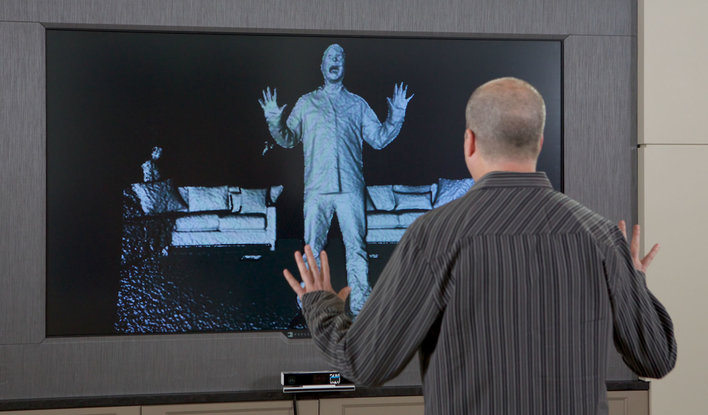When it comes to Microsoft's used game policy, it seems confusion reigns supreme. Since their new console, the Xbox One was announced just a few days ago, we've had more flip-flopping, backtracking, and contradiction about this than anything we can remember in the games industry. Over the past few days, yet more information has been starting to come out, including a few more quotes that seem to contradict yet another thing we've heard. In an interview with Venturebeat, when pressed on the issue of disc-locking, Microsoft head honcho Phil Harrison offered the following:
"Any user who is associated with that Xbox One can play that game. I can give that game disc to my son and he can go and take it to another machine inside the house and play it on that machine. Just like today, only one of us can play it at any one time."
Which would seem to negate the concerns we had about multiple console houses. As is always the case with complex schemes like this, though, the devil is in the detail, and with Microsoft being very coy about offering any firm details whatsoever, we're still not entirely sure how this could possibly work. If the disc's locked to your console, and your account, how can you play it on another system without being logged in on that console? Unless there's some sort of special, family setting for people with multiple Xbox Ones? But then what's to stop that being exploited too?

This face, pulled during a demo of the Xbox One's new Kinect sensor, sums up our feelings nicely.
Meanwhile, a few more interesting factoids have started to come out about the previously rumoured "used game fee", which was set to see individual people having to pay, again, if they wanted to be able to sell their game on. At the moment, all we know for sure is that when you put a disc into your Xbox One, it'll be automatically installed to your hard drive, and then locked to your console, and your profile. As you may expect, when it comes to trading your games in, then, that would seem to cause something of a problem - although Microsoft have gone on record saying that it will be possible to trade your games in. The only question is, how?
According to Eurogamer, who've apparently spoken with a high up source at Microsoft, the system will work a little bit like this: when you go to trade a game in, the license will be deactivated on your console, and the store will have to pay a re-activation fee in order to be able to sell the game on. This is significant for three reasons. Firstly, because it explains why the console will have to connect to the internet at least once every 24 hours in order for you to carry on playing your games; secondly, and perhaps most significantly, because it means the price of pre-owned games will effectively be controlled by Microsoft, as they control the license fee, and as such, the minimum price; while thirdly, the new system would appear to effectively cut out a lot of the ways people like to trade and sell their games. eBay, charity shops and private sales would effectively be rendered impossible through this system, as an individual would not be able to re-activate their game. The only way it might be possible would be if Microsoft were to offer an option on the dashboard to allow you to free the licence for your game, for a fee - but with Microsoft now stating that there'll be no cost to the consumer for trading games in, it would appear that trade-ins may be limited to very select partners.
With the company deciding to restrict player's rights as they are, Microsoft are going to have to be very, very careful when implementing this policy to avoid any costly price-fixing allegations. By charging a price to re-activate a game for re-sale, and setting that price themselves (it's been suggested that the fee could be up to £35), it could be argued that they're effectively controlling the price, the market, and the supply and demand - things which are frowned upon under most trade laws. With the EU recently decreeing that PC digital games store Steam would have to find a way to allow players to re-sell their games, it'll be interesting to see how Microsoft's policy evolves over the coming months...














